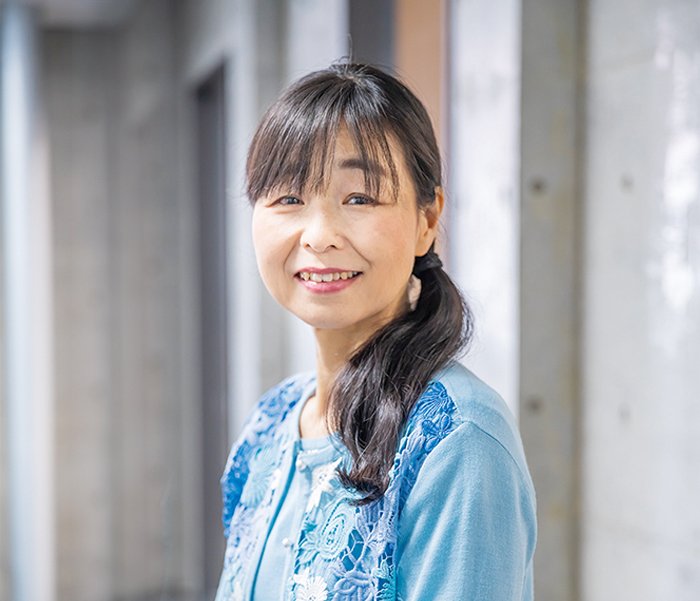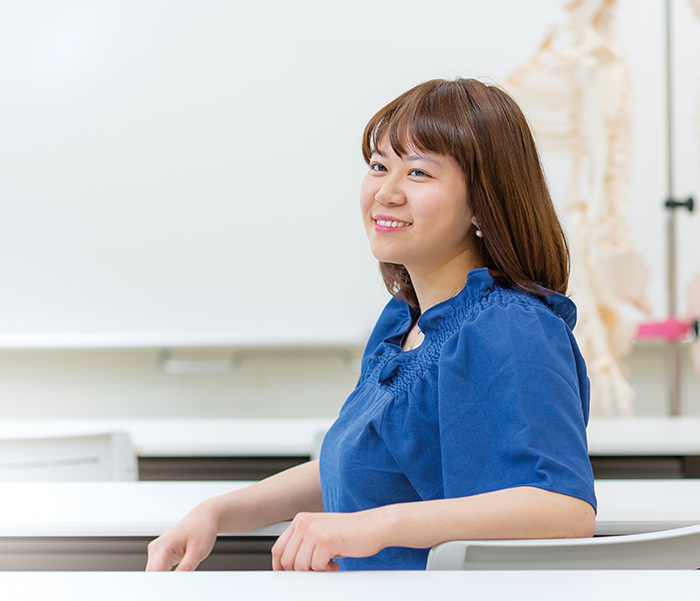Department of Food and Health Sciences
The job of a registered dietitian and nutritionist is said to be both an art and a science. Students engage in comprehensive nutritional management studies, acquiring the knowledge and skills registered dietitians and nutritionists need in various fields.
Emphasis is also placed on seminars and internships to put their systematic, step-by-step learning to practical use, creating a blend of basic and practical training.
Emphasis is also placed on seminars and internships to put their systematic, step-by-step learning to practical use, creating a blend of basic and practical training.
Message from the Head of the Department
We hope that those interested in foreign countries will take part in these new studies.

Professor Hiroko Nakazawa, Head of Department of Food and Health Sciences
In the Department of Food and Health Sciences, students set out to become professionals who are experts in healthy diets, deepening their understanding of nutrition and diets in various life stages. They also improve their English language skills so that they can communicate the diversity of food culture in Nagano and Japan, which contributes to health and longevity, to the world. Additionally, students engage in various field work to understand what kind of work a registered dietitian and nutritionist does, improve people’s quality of life, and contribute to society.
In the Department of Food and Health Sciences, students set out to become professionals who are experts in healthy diets, deepening their understanding of nutrition and diets in various life stages. They also improve their English language skills so that they can communicate the diversity of food culture in Nagano and Japan, which contributes to health and longevity, to the world. Additionally, students engage in various field work to understand what kind of work a registered dietitian and nutritionist does, improve people’s quality of life, and contribute to society.
Student interview
I also realized the importance of tailoring the message for different people.
Sayaka Nasuno, Third-year student, Department of Food and Health Sciences
Compared to the first year, which requires a great deal of memorizing the basics, there is more professional learning, and I’m discovering more interesting things about food and health. The Dietary Reference Intake class in particular is appealing because it provides more practical, professional knowledge such as the scientific basis for the nutrients necessary when providing meals. For example, various scenarios are put together based on different people coming in with different consultations about food, and we provide advice on nutritional management accordingly. By getting together with others and practicing stating our opinions, I’ve learned to be more careful about my word choice when talking to the subject. I try to provide easy-to-understand, specific reasons.

